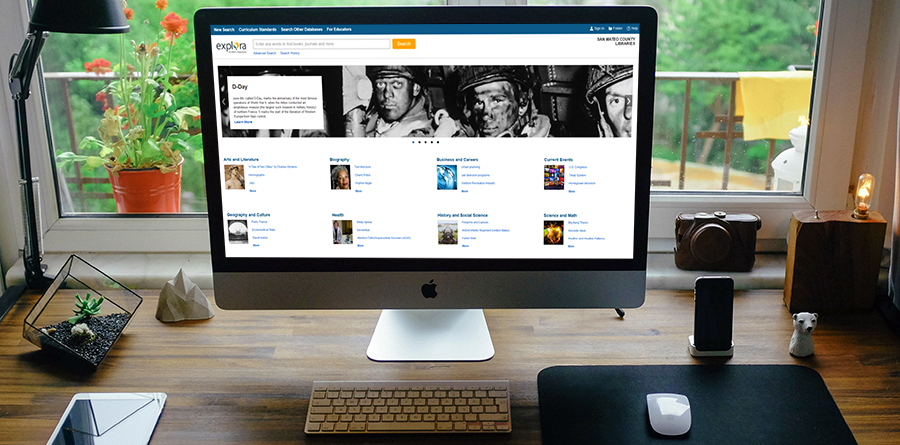
Get ready to unlock even more information with your San Mateo County Libraries card! To better serve our community’s research and reference needs, San Mateo County Libraries along with the Peninsula Libraries, are switching from Gale reference databases to EBSCO databases on July 1, 2019. Gale reference databases, such as General OneFile, Academic OneFile, the “In Context” databases, Chilton, and others will be replaced by comparable databases from EBSCO as well as some additional resources.
Information at Your Fingertips
Looking for a full-text article on women in the Surrealist art movement? Searching for a photo from the Paris Peace Accords? Seeking a part name for your make of car? Whatever it is you might be looking for; our new set of databases will likely have it!
Here are just a few of the new databases now available:
- Academic Search Complete: Thousands of academic journals on a broad range of disciplines.
- Auto Repair Source: Accurate and up-to-date service and repair information for thousands of domestic and imported vehicles.
- Legal Information Reference Center: Exclusive full text for many top consumer legal reference books, as well as thousands of legal forms.
- History Reference Center: Thousands of reliable resources including primary source documents, biographies, photos, maps, and more.
You can also search multiple databases at once using the General Research interface, which retrieves full-text from newspapers, magazines, reference databases, and more. You can also save articles to your Google Drive, save them as a link, cite them, bookmark and annotate them, and share via social media.
Research Tools for Students
Finding valuable and relevant resources for school assignments can be a challenge, but the new databases offer some useful tools for back-to-school. Students can search multiple databases at once through EBSCO's Explora, which are databases grouped together based on research needs.
Here are the Explora sites for students:
The Explora pages also have suggested topics by subject to help students get started on their research.
Coming Soon: A Single Search for All Databases
Ever wish you could search multiple databases with a single search as you would the Internet? In the near future, San Mateo County Libraries will have a search box that will crawl most of our library databases. This will not only include our new databases, but other online resources like Kanopy, Hoopla, and others. This will help you get the most out of our online resources – and perhaps even help you discover something new!
Help and Tutorials
To find tutorials, FAQs, and troubleshooting tips, visit the help page, opens a new window. You can also watch Niche Academy tutorial videos on EBSCOhost, opens a new window and Explora, opens a new window.
Got questions about the new reference databases? We’ve got answers!
When will the databases change?
The new EBSCO databases will be available on all Peninsula Libraries websites starting July 1, 2019.
Why is San Mateo County Libraries and Peninsula Libraries switching from Gale databases to EBSCO databases? What is the difference?
We are switching from Gale to EBSCO because the new arrangement will provide users with more databases and an improved manner for accessing information in those databases. We worked to ensure that the subjects/content in Gale will be covered in the EBSCO database package. We were also able to add some additional resources and a service called the EBSCO Discovery Service, which will allow users to search all of the resources with one search as opposed to searching each database individually, as was necessary with Gale.
Will we lose access to certain databases?
Starting July 1, 2019, there will no longer be access to the following databases:
- Academic OneFile
- Biography In Context
- General OneFile
- Kids Infobits
- Literature Resource Center
- Opposing Viewpoints In Context
- Student Resources In Context
- U.S. History In Context
- World History In Context
- Chilton
- Testing and Education Reference Center (TERC)
Many of the new databases are comparable to what was available through Gale.
Are there still databases for K-12 students?
Yes! We offer databases specifically for students including Elementary School Research, Middle School Research, and High School Research. Students will also find Science Reference Center and History Reference Center useful. Students can search multiple databases at once using the Explora profiles, which are groups of databases by education level. These databases are age-appropriate and the interface provides topic overviews to help student researchers get started.
Do you have more questions about our switch to EBSCO databases? Please leave them in the comments below and we'll get back to you.


Add a comment to: Boost Your Research With New Reference Databases